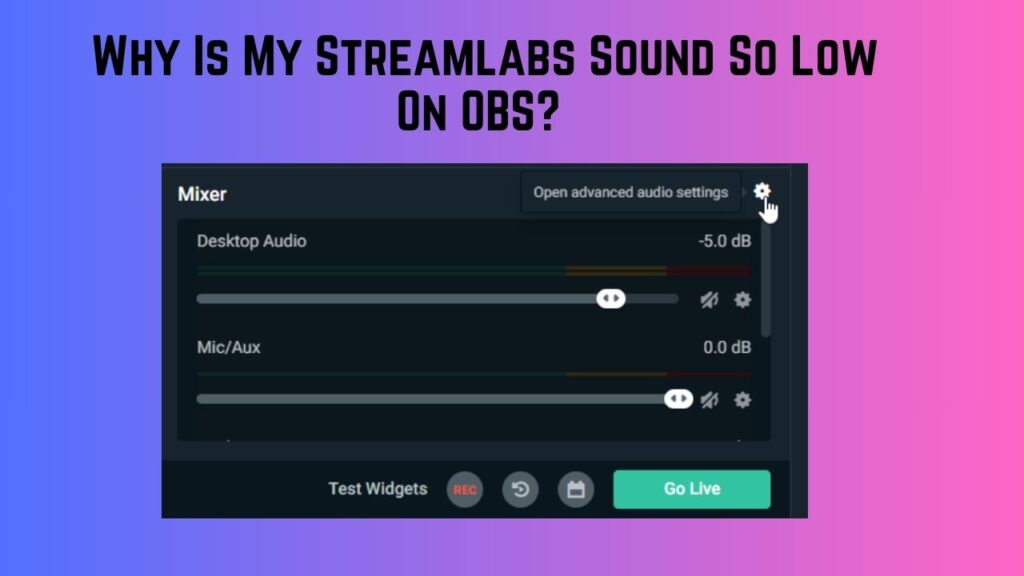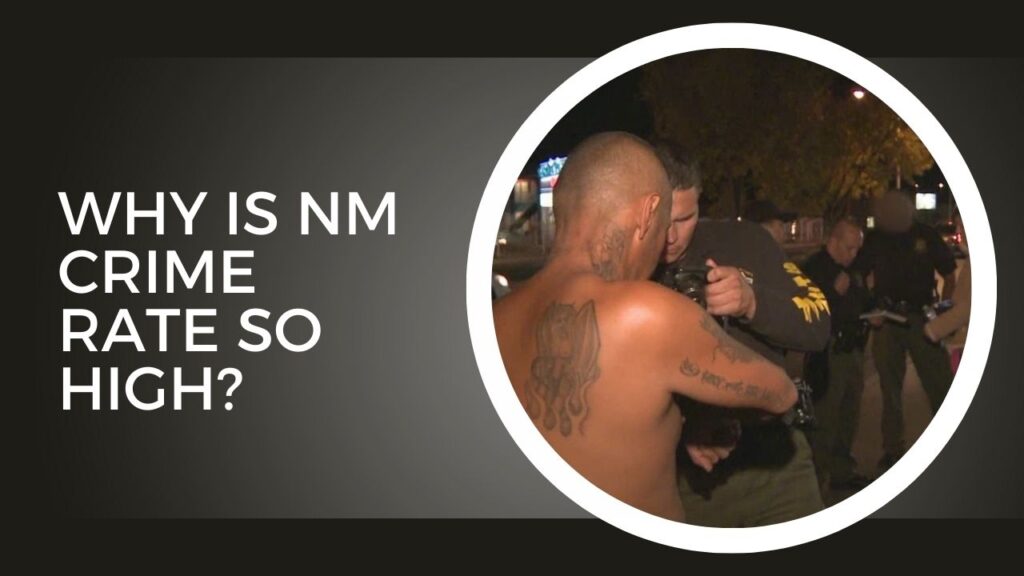Why Is My Streamlabs Sound So Low On OBS? Low audio levels in Streamlabs OBS can occur due to incorrect audio device settings or low gain levels.
Streaming has become a popular way for content creators to engage with their audience, whether it’s for gaming, music, chatting, or other types of live broadcasts.
However, even with a great stream setup, nothing is more frustrating than running into issues with your audio.
Low sound or muffled audio can severely impact the quality of your stream and ultimately affect the viewer experience. [Why Is My Streamlabs Sound So Low On OBS?]
Streamlabs OBS (SLOBS) is one of the most commonly used platforms for live streaming, known for its user-friendly interface and comprehensive features.
Despite its ease of use, audio issues, including low sound, are still a common problem. If you’ve noticed that your Streamlabs sound is too low, don’t worry—this is a common issue, and with a few adjustments, you can resolve it and restore clear, professional sound to your stream.
In this blog post, we’ll explore the reasons why your Streamlabs OBS sound may be low, how to fix it, and how to maintain optimal audio quality for your streams.
What Is Streamlabs OBS?
Before diving into the potential causes of low audio, let’s first understand what Streamlabs OBS is and why it’s so widely used. [Why Is My Streamlabs Sound So Low On OBS?]
Streamlabs OBS is a free, open-source software built for content creators who want to broadcast live to platforms like Twitch, YouTube, or Facebook.
SLOBS is based on OBS Studio, another popular streaming software, but with added features like customizable overlays, widgets, and a built-in alert system.
Streamlabs OBS is designed to be more beginner-friendly, which is why many streamers, particularly those new to live streaming, prefer it.
The software allows streamers to manage video, audio, and overlays all in one place, making it a powerful tool for those looking to create high-quality live broadcasts.
But just like any software, Streamlabs OBS is not immune to technical glitches or issues, especially when it comes to audio.
Low sound in Streamlabs OBS can be frustrating, but luckily, the causes and solutions are relatively easy to identify. [Why Is My Streamlabs Sound So Low On OBS?]
Common Causes of Low Sound in Streamlabs OBS
There are several potential reasons why your Streamlabs OBS sound might be too low. Let’s take a look at the most common ones:
1. Audio Device Misconfiguration
One of the most common causes of low sound is an incorrect configuration of your audio devices in Streamlabs OBS.
If the software isn’t properly detecting your microphone or speakers, the sound may not be transmitted at the appropriate volume.
This can happen if you’ve recently changed your devices or haven’t set them up correctly in the software.
2. Volume Settings in Streamlabs OBS
Another common issue is the volume settings within the Streamlabs OBS interface. [Why Is My Streamlabs Sound So Low On OBS?]
Whether it’s your microphone, desktop audio, or both, each audio source in Streamlabs has its own individual volume control.
If any of these are turned down too low, your sound will be barely audible to your audience. [Why Is My Streamlabs Sound So Low On OBS?]
3. Low Mic Gain
The gain on your microphone plays a significant role in determining how loud your voice will be. If your microphone’s gain is set too low, even if you speak normally, your voice will sound faint or distant.
This issue is common when using budget microphones that don’t have automatic gain control.
4. Audio Filters and Effects
Streamlabs OBS offers a variety of audio filters and effects to help enhance your sound, such as noise suppression, compression, and equalization.
While these filters can help clean up your audio, they can also reduce the overall volume if they’re not properly configured.
For example, a high noise suppression setting could inadvertently cut down on the volume of your voice. [Why Is My Streamlabs Sound So Low On OBS?]
How to Fix Low Sound Issues in Streamlabs OBS
Let us go over how to resolve low sound in Streamlabs OBS now that we are aware of the possible causes. To raise your audio levels to the proper level, take these procedures.
Step 1: Check Audio Device Settings
Before making adjustments to volume levels, start by ensuring that your audio devices are set up correctly in Streamlabs OBS.
- To enter the settings menu, launch Streamlabs OBS and tap the gear icon in the bottom-left corner.
- Go to the Audio section. [Why Is My Streamlabs Sound So Low On OBS?]
- Under Mic/Auxiliary Audio Device and Desktop Audio, make sure the correct devices are selected. If you use a headset, microphone, and speakers, check that each is properly configured.
- Test your devices to ensure that Streamlabs OBS is detecting them. If you’re using a USB mic, make sure that it’s connected and recognized.
If everything is configured correctly and you’re still experiencing low sound, it’s time to move on to the next step. [Why Is My Streamlabs Sound So Low On OBS?]
Step 2: Adjust Streamlabs OBS Audio Settings
Now that your devices are set up, check the volume levels in Streamlabs OBS itself.
- In the main Streamlabs OBS window, locate the Mixer section.
- You’ll see sliders for your microphone and desktop audio. Make sure none of these sliders are set too low or muted.
- Adjust the sliders until you find an appropriate level. You can test it by speaking into your microphone or playing some audio.
- If you notice your microphone is still too quiet, proceed to the next step. [Why Is My Streamlabs Sound So Low On OBS?]
Step 3: Increase Mic Gain
If your microphone is still too quiet, you may need to adjust the mic gain. The gain controls how sensitive your microphone is to sound. If the gain is too low, your voice will sound faint, no matter how loudly you speak.
- In the Mixer section, click on the gear icon next to your microphone input and select Filters.
- In the Filters window, click the + button to add a new filter.
- Choose the Gain filter, and you will see a slider that lets you adjust the gain.
- Increase the gain by sliding it to the right. Be cautious not to set it too high, as this can lead to distortion or clipping.
- Test your microphone to see if the gain adjustment has improved the sound.
Step 4: Review Audio Filters
If you have any audio filters applied, they may be affecting your audio levels. Filters like noise suppression, noise gates, or compressors are designed to improve your sound quality, but if they’re set incorrectly, they can reduce your overall volume.
- In the same Filters window, review any filters you have applied to your microphone. [Why Is My Streamlabs Sound So Low On OBS?]
- For instance, noise suppression is a great tool to cut out background noise, but if set too high, it could also reduce your voice volume.
- Adjust or disable filters like Noise Gate, Noise Suppression, or Compressor to see if they are causing the low sound issue.
- If disabling a filter solves the problem, consider adjusting the filter’s settings instead of turning it off entirely.
Step 5: Test and Troubleshoot
After making these adjustments, run a test stream or recording to see if the problem has been fixed. Here are a few things to keep in mind:
- Monitor your sound: Use headphones to monitor your sound while streaming to ensure there are no issues with the audio. [Why Is My Streamlabs Sound So Low On OBS?]
- Check for clipping: Pay attention to whether the sound becomes distorted when adjusting the gain. If the gain is set too high, it can cause clipping, which makes your audio sound harsh and unpleasant.
- Fine-tune the settings: Sometimes, it takes a few tweaks to get everything just right. Adjust the volume settings, mic gain, and filters until you’re satisfied with the sound.
Best Practices for Maintaining Good Sound Quality
Once you’ve resolved your low sound issue, it’s important to maintain optimal sound quality for future streams. Here are a few best practices to help you ensure great audio every time you go live:
1. Regular Audio Checks
Before each stream, it’s a good idea to perform a quick audio check. This will allow you to adjust your settings as necessary and avoid issues once you’re live.
Set up a test stream or recording, and ensure that your mic and desktop audio levels are balanced.
2. Investing in Quality Audio Gear
If you’re serious about streaming, investing in a high-quality microphone is crucial. While budget microphones can work for beginners, they may not provide the clarity and loudness you need for professional streams.
Consider upgrading to a condenser or dynamic mic, and pair it with an audio interface for the best sound quality. [Why Is My Streamlabs Sound So Low On OBS?]
3. Use Headphones to Monitor Audio
To avoid potential audio issues, always use headphones while streaming. This will help you hear exactly what your audience is hearing, so you can catch any problems with sound early on. It also prevents feedback or echoing, which can disrupt the experience for your viewers.
4. Avoid Background Noise
Reducing background noise will help ensure your microphone picks up only your voice. Keep your streaming environment quiet, away from distractions like fans, air conditioning, or loud music.
Using soundproofing techniques or noise-canceling headphones can also help. [Why Is My Streamlabs Sound So Low On OBS?]
See Also: 5 Reasons Why Is Curious George Movie So Great?
FAQs
Why is my Streamlabs OBS microphone too quiet?
Your mic gain may be too low, or the microphone settings in Streamlabs OBS might not be configured correctly. Check the device settings and increase the gain.
How can I test my microphone sound before streaming?
Streamlabs OBS has a “Test Widget” feature that allows you to test your microphone and audio setup before going live.
Why does my Streamlabs OBS sound cut out?
This could be due to a weak connection, incorrect audio settings, or conflicting audio filters. Make sure all settings are properly configured. [Why Is My Streamlabs Sound So Low On OBS?]
How do I fix an echo in Streamlabs OBS?
Echoing can occur if you have multiple audio sources active. Use the “Noise Gate” filter or adjust your microphone and desktop audio settings to eliminate the echo.
Should I use noise suppression filters in Streamlabs OBS?
Noise suppression filters can reduce background noise but might also lower your voice volume. Adjust the filter settings to avoid reducing the sound too much.
Conclusion: Why Is My Streamlabs Sound So Low On OBS?
Low sound in Streamlabs OBS is a common issue, but it can be easily fixed with the right adjustments. [Why Is My Streamlabs Sound So Low On OBS?]
By checking your audio device settings, adjusting your mic gain, and reviewing any audio filters, you can restore optimal sound quality to your streams.
Always monitor your audio while streaming and make periodic checks to maintain consistent audio levels.
With a little effort, you can ensure your stream sounds as professional as it looks, providing the best experience for your audience. Happy streaming!

Hi, I’m Fernando Pham, and welcome to WhyDetails.com! I’m from San Francisco, and I love exploring questions and sharing answers through my blog.



